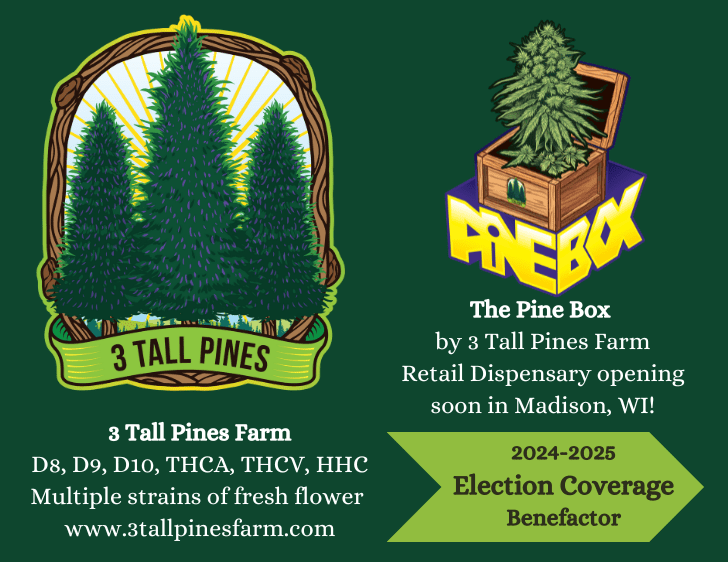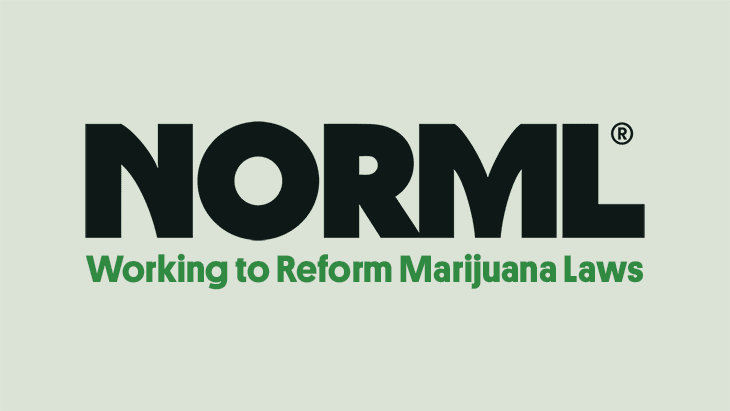NORML’s Guide to Delta-8 THC and Other Novel Cannabinoids
One of the most frequent asked questions or topics at the moment are regarding Delta 8 (D8) THC. I wanted to highlight one of our Fact Sheet reference organizations and their recent Fact Sheet on Delta-8 THC and other novel cannabinoids.
In addition, I also wanted to link and source the Wisconsin Legislative Council Memo on the legality of D8 they published back in June of 2020.
The Food and Drug Administration (FDA) has information published under an article entitled 5 Things to Know about Delta-8 Tetrahydrocannabinol – Delta-8 THC.
Here is the Fact Sheet from NORML on the issue:
NORML’s Guide to Delta-8 THC and Other Novel Cannabinoids
Dale Gieringer, Ph.D, Director, California NORML
A number of novel cannabinoids have begun to appear in both state-regulated cannabis products and in non-regulated products derived from hemp. These substances do not possess the same extensive record of safe use and scientific research as do the more familiar cannabinoids typically found in marijuana and hemp, namely Delta-9 THC and CBD. A popular example is Delta-8 THC, which is now available from numerous cannabis and hemp outlets, sometimes under the false pretense that it is a legal hemp product.

What is Delta-8 THC?
Delta-8 THC is an isomer, or minor chemical variant, of Delta-9 THC. It occurs only at minuscule levels in natural cannabis. High levels of Delta-8 THC are produced artificially by chemically converting CBD or Delta-9 THC through a process known as isomerization. All Delta-8 THC products are manufactured by some form of chemical conversion.
What Does Delta-8 THC Do?
Delta-8 THC is psychoactive, but weaker than Delta-9 THC according to users’ reports. Only a handful of human subjects have been tested with Delta-8 THC in scientific studies. Therefore, little is known about its long-term safety, its consumption at high dosages, or its medicinal effects. However, given its chemical similarity to Delta-9 THC and its presence in natural cannabis, the safety of Delta-8 THC is thought by most experts to be similar to that of other cannabinoids.
What’s a Safe Source of Delta-8 THC?
It’s important that Delta-8 THC products be carefully tested for impurities. Delta-8 THC extracts often contain high levels of Delta-9 THC, which is hard to separate out. In addition, the chemical conversion process can produce high levels of other impurities, especially in products derived from CBD.
In some states, products advertised as containing Delta-8 THC are available from state-regulated cannabis dispensaries. In these jurisdictions, these products ought to be subject to the same testing and purity requirements as are other cannabis products prior to being brought to market. However, most Delta-8 THC products are manufactured from hemp-derived CBD and sold through unregulated grey market sources like convenience stores, smoke shops, and gas stations. These products are not reliably tested, and have been found to contain many impurities.

NORML therefore strongly advises consumers to obtain Delta-8 THC products only from state-regulated cannabis manufacturers, NOT from the unregulated hemp market.
Is Delta-8 THC Federally Legal?
No. Delta-8 THC is an illegal Schedule One substance under federal law. Some hemp manufacturers falsely claim otherwise, arguing that it’s legal if it is manufactured from hemp-derived CBD. The DEA disagrees with this claim and has moved to confiscate products containing hemp-derived Delta-8 THC.
The feds have not moved against products advertised as containing Delta-8 THC that are regulated by state-legal cannabis programs.
Other Cannabinoids
Numerous other minor cannabinoids and cannabinoid derivatives have been identified, a few of which have begun to appear on the market. None have been tested at significant dosages in humans. NORML strongly advises consumers against using products that are not approved and tested through state-legal cannabis programs.
Delta-10 THC is a synthetic isomer of Delta-9 THC said to be weaker than Delta-8 THC. Delta-10 is one of several isomers (Delta-6, Delta-7, etc) that do not occur naturally in cannabis, but instead are manufactured by labs. None have been tested for safety and efficacy in human studies. Another new synthetic cannabiniod, THC-O acetate, is reputed to be stronger than Delta-9 THC. Consumers are strongly advised to avoid potent cannabinoid derivatives on account of their potential toxicity. Though Delta-10 and THC-O acetate are available from some gray market sources, NORML does not endorse commercial sale of these or other new synthetic cannabinoids until more research on their safety and purity has been performed.
Synthetic Delta-9 THC products manufactured from hemp-derived CBD have been circulating on the unregulated market. Consumers are strongly advised to avoid these products, as they are not properly tested; they are illegal and apt to contain impurities.
Other Natural Cannabinoids
A number of other weak or non-psychoactive cannabinoids common to the cannabis plant are now available on the market in legal states. These include CBG, CBN, THC Acid, CBD Acid, and others. There also exist naturally occurring “-varin” varieties of cannabinoids, such as THCV, CBDV, etc. They are most likely safe to consume, as users have been exposed to them for many years, though generally only at low concentrations. They may also have therapeutic benefits, although these have yet to be firmly established in controlled human studies. State-regulated cannabis products are a safe source of natural cannabinoid extracts.
Terpenes
Terpenes are naturally occurring compounds that contribute to the taste and odor of cannabis. They have been shown to contribute to the medicinal effects and “high” of cannabis. They have been found effective at low levels ≪1% in the plant, but there’s no evidence that higher dosages are helpful. Manufacturers sometimes add terpenes to their products to improve their flavor, taste and medicinal effects. This is fine so long as they use terpenes at modest dosages that occur naturally in the plant. While the terpenes in cannabis are generally safe to consume orally, consumers should beware that artificially concentrated terpenes could produce irritating or toxic effects when smoked or vaped.






